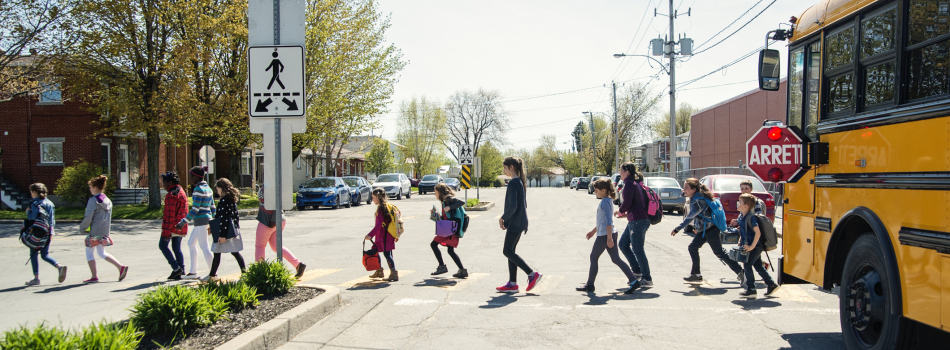Over 500,000 school buses are used to transport kids to school across North America every day, performing a vital but oft-overlooked educational task. As these buses age, around 40,000 new and replacement vehicles are purchased by school boards each year.
While the vast majority of these new iconic yellow buses still run on carbon-emitting diesel fuel, a small but growing number are all-electric vehicles. Leading this market is Quebec manufacturer Lion Electric Company, which designs, manufactures and assembles all components out of its Saint-Jérôme headquarters north of Montreal.
Founded in 2008, the company has grown into one of the North American market leaders in the electric school bus industry segment. It also produces other specialized electric vehicles like delivery and garbage trucks.
Lion Electric has now sold around 100 electric school buses to school boards across Canada, as well as an additional 50 in the U.S. In July 2019, the California Energy Commission awarded a new contract to Lion Electric to help fulfil a new $70 million order to replace over 200 diesel school buses across the state.
School buses are uniquely well-suited for electrification, operating on reliable schedules across relatively short distances that allow for sufficient charging. The Lion Electric buses maintain a range of 90 to 150 km, depending on configuration.
The biggest barrier to adoption, for now, remains the larger up-front cost of the vehicles. The vehicles can cost up to three times as much to purchase as traditional diesel buses, dissuading a lot of school boards from making purchases for now. But according to the Quebec environmental organization Equiterre, there are a number of additional benefits of going electric.
The Quebec government already subsidizes diesel fuel for school buses above 60 cents a litre (current prices sit at $1.20). Going electric would eliminate the need for this subsidy. Electric buses are also quieter, reducing noise pollution in residential neighbourhoods. Most importantly, operating Lion’s electric busses costs up to 60% less due to cheaper electricity and reduced maintenance costs.
Equiterre calculated that electrifying 90% of the province’s school bus fleet would reduce greenhouse gas emissions by 2.37 million tonnes a year, create local jobs, reduce healthcare spending by $1 million and reduce annual oil imports by $67 million.
With growing understanding of the benefits of electrification, some provinces and states like California and Quebec are beginning to offer up-front subsidies for electric bus adoption or even setting hard targets for adoption. Reducing perverse subsidies that increase fossil fuel usage (like diesel fuel subsidies) and using their power of procurement are two of the most powerful tools governments have at their disposal.
What better way to transport the next generation to school than on emissions-free electric power made in Canada?
Read up on more Ecopreneur stories here, and follow @smartprosperity to join the #CanadasEcopreneurs conversation.



